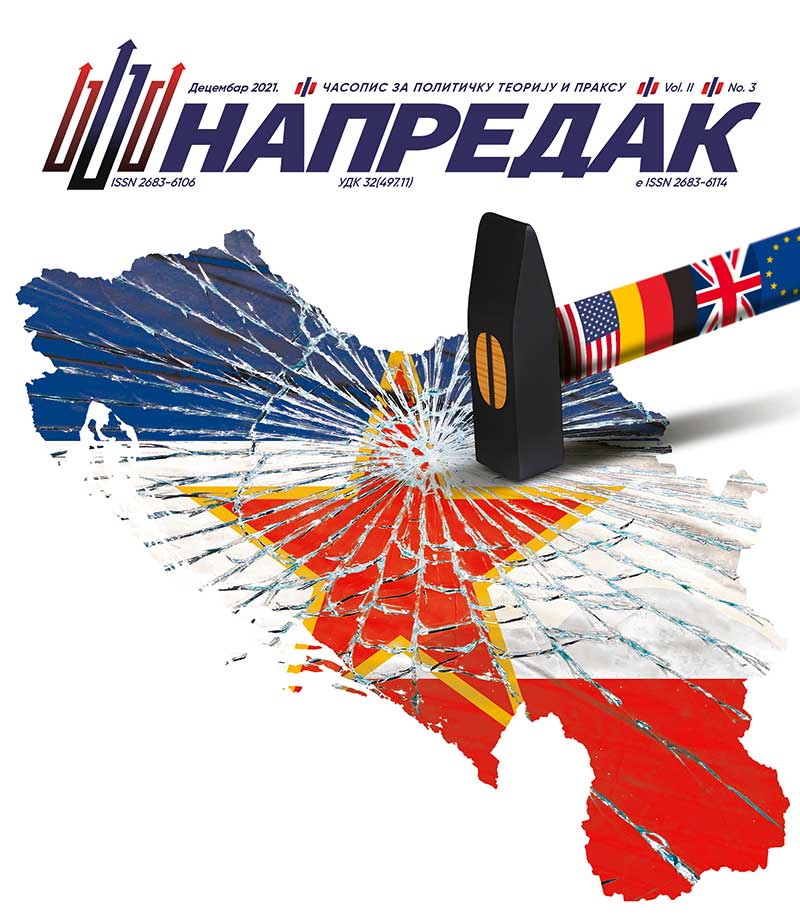Књижевна пројекција распада Jугославије
Sažetak
Истраживање поетолoшко-културног значаја књижевности од последње деценије XX века до
данас у културолошком контексту може се ослонити, осим на социјалну, историјску и антрополошку сферу, и на општу културу сећања. Литерарна пројекција распада Југославије у овом случају обухвата последње три деценије развоја српске литературе. У раду је примењен интердисциплинарни приступ тумачењу, сходно ауторским аспектима, а основни теоријски оквир чине тачке гледишта ликова који монолошки или у оквиру других наративних форми литерарног дискурса, артикулишу свој став о трагичним ломовима по државу, породицу, биће. Одабрани прозни искази чине структурно-поетичке и семантичко-аксиолошке поруке различитих аутора и ликова. Укључено је двадесетак романа свих ауторских генерација који су мање или више простора посветили проблематици последњег грађанског рата на Балкану. Моделом цитатности карактеристичне за тему, супротстављени су различити субјективни ставови ликова, идеолошки обојени
или политички коректни. Одломци су бирани искључиво по вредносним критеријумима. Писци интензивније, слободније и емотивније реагују на трагичну стварност и ратну апокалипсу.
Reference
Avramović, Z. (2016). Men of letters and politics in Serbian culture 1804–2014. Novi Sad: Pravoslavna reč [In Serbian]
Bazdulj, M. (2015). The square root of life. Belgrade: Laguna [In Serbian]
Bratić, R. (2008). Author and document. Bileća: Prosvjeta [In Serbian]
Damjanović, R. (2016). I will swim forever. Novi Sad: Prometej [In Serbian]
Demić, M. (2012). A returner’s requiem. Zrenjanin: Agfora [In Serbian]
Drašković, V. (2015). Jesus’ memoirs. Belgrade: Laguna [In Serbian]
Jović, B. (2020). The great deception – how Serbs lost a century. Belgrade: Službeni glasnik [In Serbian]
Kapor, V. (2014). One walks through memories as in moonlight. Novi Sad: Agora [In Serbian]
Kecmanović, V. (2008). The cannon was hot. Belgrade: Viaprint [In Serbian]
Kecmanović, V. (2015). Solitude. Belgrade: Laguna [In Serbian]
Kekanović, D. (2013). The heart of the boar. Belgrade: SKZ [In Serbian]
Kuljić, T. (2006). The culture of memory. Belgrade: Čigoja [In Serbian]
Marojević, I. (2020). The remains of the world. Belgrade: Dereta [In Serbian]
Nenadić, D. (1999). Hurricane. Belgrade: Narodna knjiga [In Serbian]
Nikolić, D. (2002). Autumn silk. Belgrade: Narodna knjiga [In Serbian]
Radulović, J. (2008). From Saint Marina to Mary Magdalen. Belgrade: Evrogunti [In Serbian]
Sarić, P. (2008). Sara. Belgrade: SKZ [In Serbian]
Selenić, S. (2009). Premeditated murder. Belgrade: Laguna [In Serbian]
Stevanović, V. (2019). Cowwebs. Belgrade: Službeni glasnik [In Serbian]
Stoiljković, D. (2020). Neon blues. Belgrade: Laguna [In Serbian]
Toholj, M. (2010). Bells for three men. Belgrade: SKZ [In Serbian]

